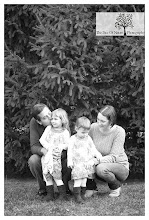Each of the following stories can be found in Contemporary Turkish Short Fiction: A Selection (Vol. 1)
"Beyond the Coop" by Yusuf Atilgan (p. 33-35)
An allegory about life in Turkey, "Beyond the Coop" is written from the point-of-view of a hen in a hen house. As the short story progresses, the hen befriends her human owner, finds her way out of the coop, gets chased by dogs, returns to the coop, and then decides that life, although dangerous on the outside, is better for her. It wouldn't take much to get students to see this as a metaphor for women's rights, but the fact that "Beyond the Coop" is written by a man makes it even more interesting and thought provoking. While students don't need any background information to read this story, a more in-depth discussion would occur if they had a knowledge of Turkish/Muslim culture.
"The Forgotten" by Oğuz Atay (p. 89-93)
Another short story with a female protagonist written by a male author, "The Forgotten" follows a woman as she searches through her attic for books to sell. While her husband is downstairs waiting for her, she stumbles upon old photographs that show her with her first husband, whom she had forgotten. The story unfolds as she begins to remember the circumstances by which he left her. They had had a fight and he had gone up to the attic to calm down, while she had gone out. When she returned, he was gone. While she had believed that he'd left her, he had really been in the attic the entire time, dead from a gunshot wound to the head. The ending is ambiguous - did he commit suicide or did she kill him? Students will enjoy the plot twists and have definite opinions as to the ending of the story.
"Blue Sky Black Earth" by Adnan Özyalçiner (p. 94-97)
In "Blue Sky Black Earth," students will be able to see the stark divisions between upper and lower classes in Turkey. The main character throughout most of the story is a businessman who is plagued by a foul odor making its way to the top of his building. Below him he can see men working on a sewer line not far from the skyscraper. When he tries to leave after a late night at work, he finds that his car has been blocked by a wall of cobblestones moved during the work. As he enlists the help of a boy to move the sewage-covered stones, the narration turns to one of the workers who has just received his paycheck from the day's work. The worker is at the pharmacy getting a prescription for his baby, but unfortunately his pay is not enough money to cover the costs. Students will be able to relate to this division between upper- and lower-classes which exists across the world. No background knowledge is needed to understand the story - it could be set in almost any city with large buildings.
Other stories which were interesting but not completely relevant to Turkish culture were "Three Falls (A Dream)" by Ferit Edgü (p. 104-107), a story in three parts where the narrator dreams he is a bird being shot by a hunter and retrieved by a dog (or is he the hunter? or the dog? or all three?), and "The Bell" by Osman Şahin (p. 152-161), in which a wolf is punished for killing a nomad camp's sheep using a bell around his neck.
Subscribe to:
Post Comments (Atom)

No comments:
Post a Comment